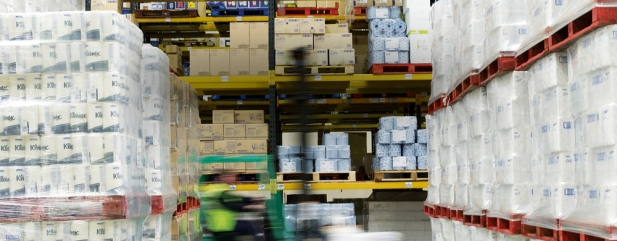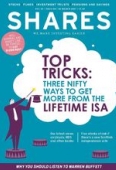Archived article
Please note that tax, investment, pension and ISA rules can change and the information and any views contained in this article may now be inaccurate.
Earn more every year with Bunzl

The return of Bunzl (BNZL) to more normal valuation levels is reason to take another look at one of the FTSE 100’s best dividend growth stories.
It could benefit from Donald Trump’s plans to boost the US economy as North America accounts for 60% of its sales. The ongoing recovery in the oil and gas sector is also helpful. It provides safety equipment to the space.
Shares in the distribution business soared last summer as investors flocked to own companies with big overseas earnings which would enjoy a translation boost when reported in sterling. The benefits were apparent in full year results reported earlier this week (27 Feb) with Bunzl estimating a 10% boost from currency conversion.
In and out of favour
Bunzl is often considered to be a ‘bond proxy’ which is a term to describe defensive companies that have safe, predictable returns and fairly limited share price movements year in, year out.
Bond proxies become less desirable when there are expectations for higher interest rates. The stock market expects more significant returns from equities at this point in the cycle, making bond proxies and their limited likelihood of large share price gains less appealing.
Bunzl’s shares fell nearly 20% in late 2016 as investor appetite for bond proxies waned. They’ve now started to recover as investors return to quality businesses in the face of uncertain global economic conditions.
We think it is unfair to classify Bunzl as a bond proxy. Its share price has doubled in the past four years which doesn’t conform to the normal pattern of a pedestrian, defensive stock. The company calls itself ‘GDP-plus’, meaning its earnings should grow in excess of GDP in the countries in which it operates.
What does Bunzl do?
Bunzl is quite simple to understand. It supplies things that companies need in order to do business; but not items they would sell to their customers. For example, it supplies disposable coffee cups to cafes and food wrap to supermarkets.
It buys companies and makes them better, leading to increased profitability and cash flow. The latter helps to fund higher dividends each year and funds more acquisitions. Bunzl calls this a ‘compounding strategy’.
It has paid out £1bn in dividends since 2004 and spent £2.4bn on acquisitions – all self-funded. Acquisitions drive its earnings.
Organic revenue growth was next to nothing in 2016, partially as a result of losing a big customer. However, pre-tax profit – assuming no change in exchange rates – grew by 6% which is a better indicator of Bunzl’s typical performance. (DC)
Bunzl (BNZL) £22.39

Stop loss: £15.50
Market value: £7.5bn
Important information:
These articles are provided by Shares magazine which is published by AJ Bell Media, a part of AJ Bell. Shares is not written by AJ Bell.
Shares is provided for your general information and use and is not a personal recommendation to invest. It is not intended to be relied upon by you in making or not making any investment decisions. The investments referred to in these articles will not be suitable for all investors. If in doubt please seek appropriate independent financial advice.
Investors acting on the information in these articles do so at their own risk and AJ Bell Media and its staff do not accept liability for losses suffered by investors as a result of their investment decisions.
Issue contents
Big News
Editor's View
Great Ideas Update
Investment Trusts
Larger Companies
Smaller Companies
Story In Numbers
- £24.3bn: Personal pension contributions break new record
- 15.7% jump in UK remortgage approvals in January
- Real Estate Investment Trusts
- FTSE All-Share Sectors
- 66%: Potential jump in IMI’s 2017 earnings per share
- 24%: US worst offender for cyber-attacks
- $6.47bn: Warren Buffett’s costly mistake
- 10 years: First dividend growth in a decade from Intu

 magazine
magazine









